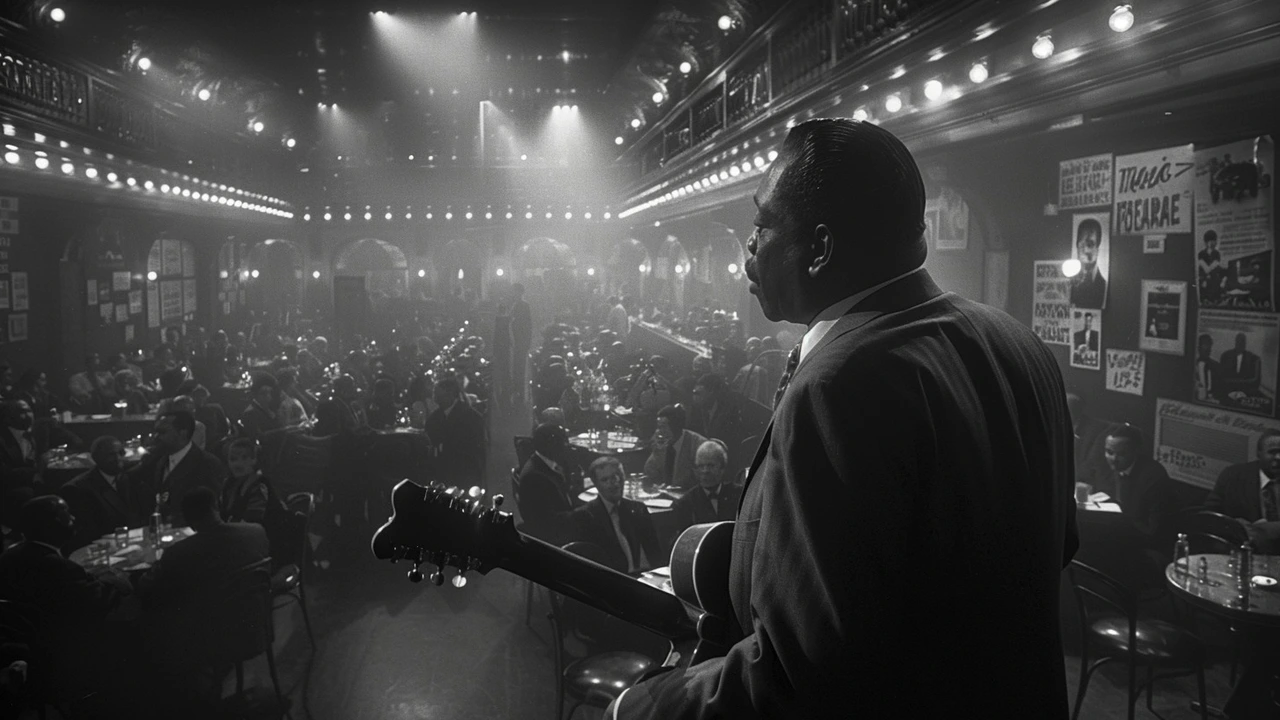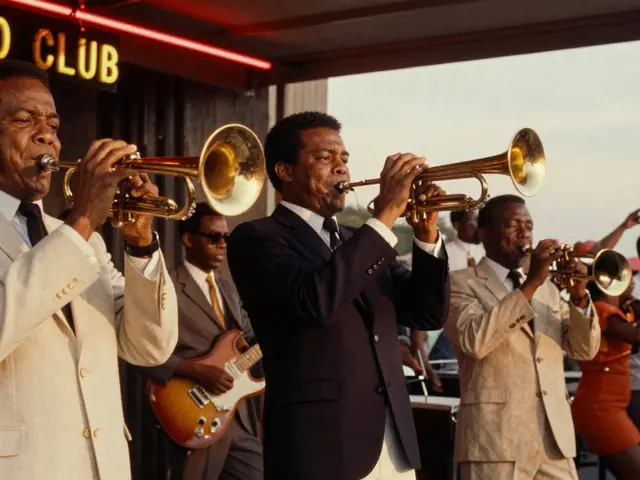The Origins of Blues Music
Blues music, with its deep roots in African American history, emerged in the late 19th century as a form of expression for African Americans living in the South. The genre, characterized by its call-and-response patterns, expressive melodies, and poignant lyrics, reflected the trials, tribulations, and resilience of the African American experience. Born out of field hollers, work songs, spirituals, and chants, blues music quickly evolved, giving a voice to the oppressed and laying the groundwork for its relationship with the Civil Rights Movement.
The Evolution of Blues Music
As the 20th century progressed, blues music witnessed significant transformations. From the acoustic Delta blues of the Mississippi region to the electrified sounds of Chicago blues, the genre diversified, reflecting the changing times and experiences of African Americans. This evolution also marked the movement of African American populations from the rural South to urban centers in the North, a migration that influenced the thematic content and stylistic elements of blues music. The evolution of blues underscored the genre's adaptability and its profound connection to the African American narrative.
Key Figures in Blues Music
Several pioneering artists left indelible marks on the world of blues music, infusing the genre with their unique voices and experiences. Legends like B.B. King, Muddy Waters, and Howlin' Wolf, among others, played pivotal roles in shaping the sound and direction of blues music. Their songs, often autobiographical, spoke to the struggles and hopes of African Americans, resonating with a wide audience and solidifying blues as a powerful medium of expression. Through their contributions, these artists not only defined the genre but also influenced future generations of musicians across various musical landscapes.
Blues Music and the Civil Rights Movement
The Civil Rights Movement, a pivotal period in American history marked by the fight against racial segregation and discrimination, found an ally in blues music. The genre served as a sonic backdrop to the movement, with its lyrics often reflecting the sentiments of protest, resilience, and demand for equality. Blues songs captured the essence of the African American struggle, becoming anthems of the movement and inspiring activists and supporters alike. The relationship between blues music and the Civil Rights Movement underscored the genre's role in societal change, showcasing music's power to unite, heal, and motivate.
Songs of Protest and Resilience
The blues genre gave rise to numerous songs that directly addressed the themes of freedom, justice, and equality. Tracks like "Strange Fruit" by Billie Holiday, which poignantly depicted the horrors of lynching in the South, and "Mississippi Goddam" by Nina Simone, a bold critique of racial violence, became powerful tools of expression and awareness. These songs, and many others, laid bare the harsh realities faced by African Americans, serving both as a form of protest and a source of solace. Through poignant lyrics and emotive melodies, blues music amplified the voices of those fighting for their rights, leaving a lasting impact on the Civil Rights Movement.
The Cultural Impact of Blues Music
The influence of blues music extends far beyond its role in the Civil Rights Movement; it has profoundly shaped American music and culture. As a precursor to genres like rock and roll, R&B, and hip hop, blues music has left an indelible mark on the musical landscape. Its themes of struggle, hope, and resilience continue to resonate, influencing artists across genres and generations. Moreover, blues music has played a critical role in bridging racial divides, fostering a greater understanding and appreciation of African American culture and history. The genre's legacy, both as a form of expression and as a catalyst for social change, underscores its significance in the tapestry of American culture.
Preserving the Legacy of Blues Music
In recognizing the historical and cultural importance of blues music, efforts to preserve and celebrate the genre have gained momentum. Institutions like the Blues Foundation and the Delta Blues Museum work tirelessly to honor the legacy of blues music and its pioneers, through education, preservation, and performance initiatives. Annual events such as the International Blues Challenge and the Delta Blues Heritage Festival serve as platforms to showcase contemporary blues artists, ensuring the genre's vitality and relevance for future generations. Through these endeavors, the rich history and enduring spirit of blues music continue to be celebrated, making it an integral part of America's cultural heritage.
The Enduring Spirit of Blues Music
Blues music, with its origins rooted in the African American experience, remains a testament to the power of music as a form of expression, resistance, and unity. As the soundtrack of the Civil Rights Movement, it played a significant role in echoing the desires and struggles of an entire community, leaving an indelible mark on history. Today, as we reflect on the genre's impact and its ongoing relevance, it's clear that the spirit of blues music continues to inspire, heal, and bring people together. As a father, I see its enduring values reflecting the hopes and dreams I have for my kids, Xavier and Leighton, and the world they will inherit. In essence, blues music is more than just a genre; it's a cultural touchstone that embodies the resilience and creativity of the human spirit.






